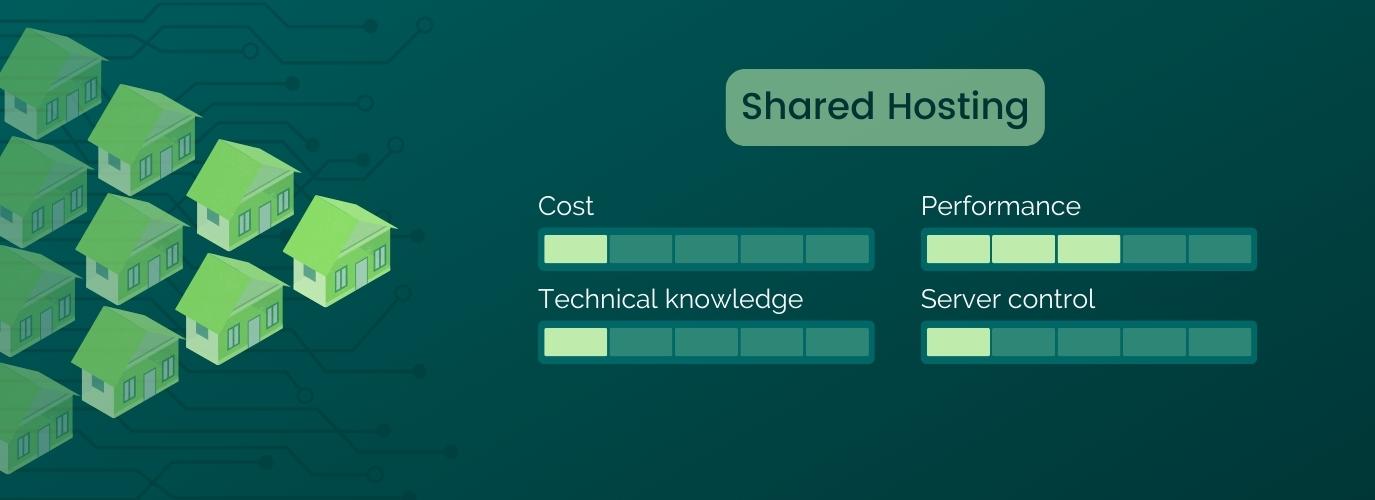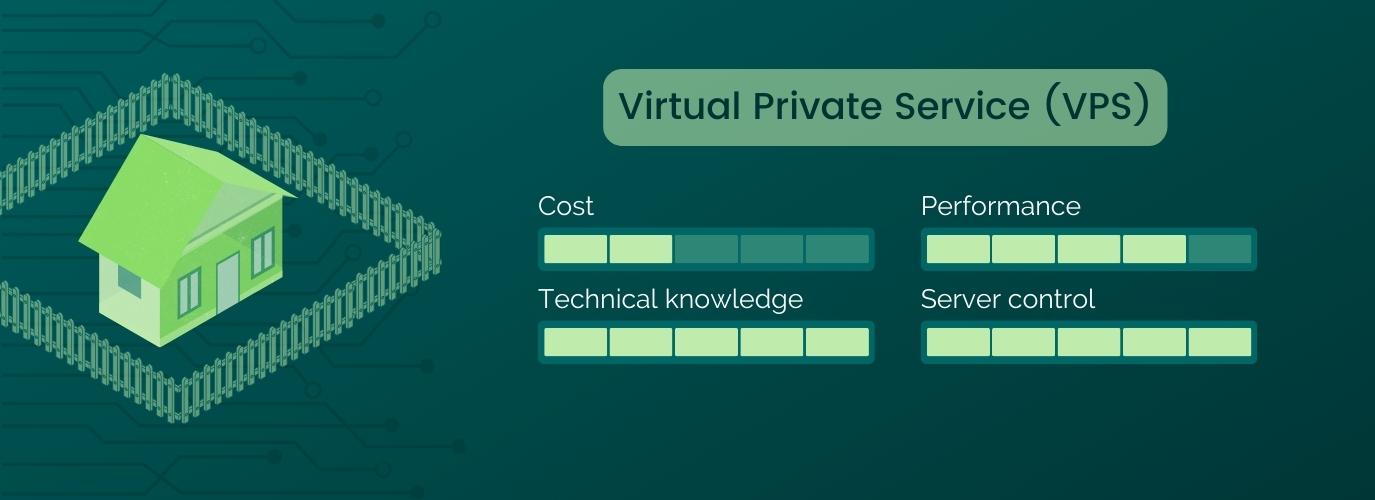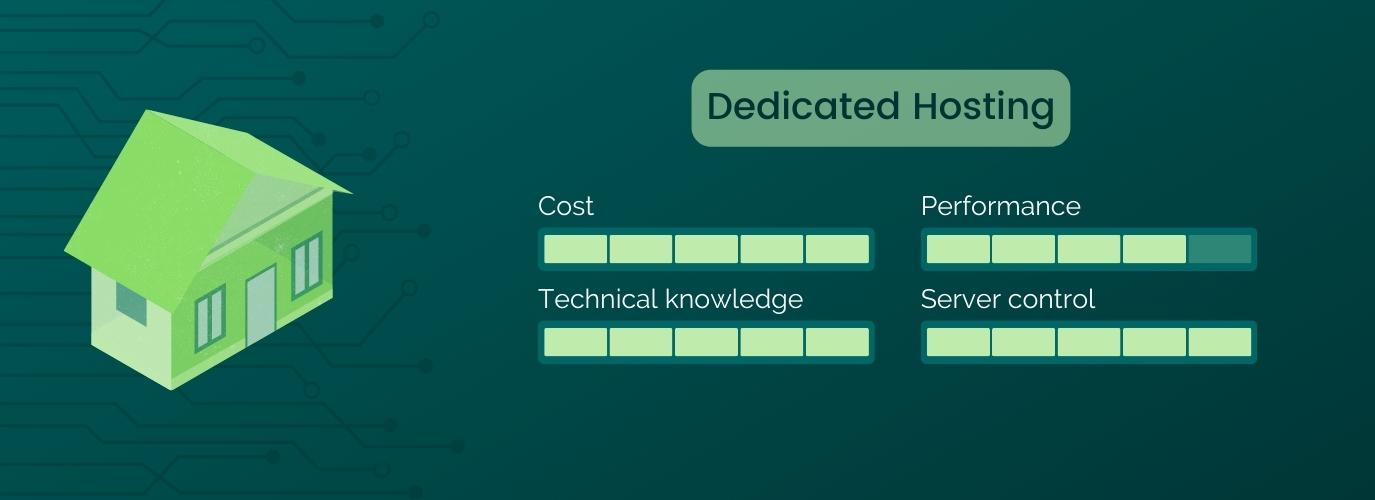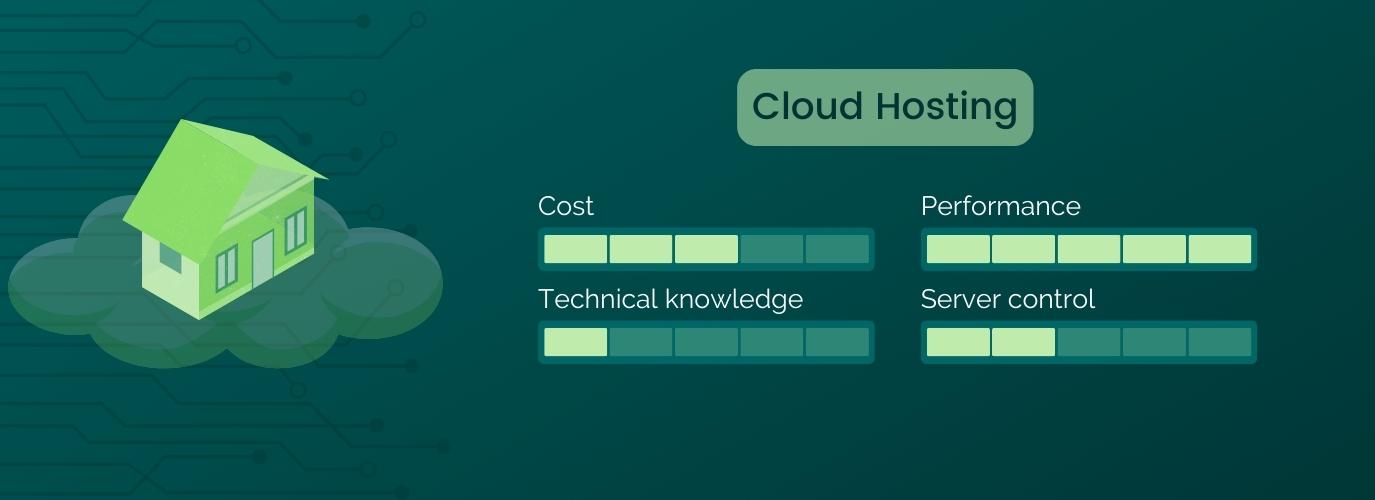What is a web hosting. How to choose the best one

For your website content, like HTML, CSS, and images, to be viewed online, they need to be hosted on a server. This enables the correct transfer of data to the browsers of your visitors.
Let’s delve deeper.
How Does Hosting Work?
Hosting occurs when all the files (images, data, text, etc.) comprising your website are uploaded from a local computer to a web server. The server’s resources (like RAM, hard disk space, and bandwidth) are allocated to the websites using them.
Hosts store data on hardware known as web servers, which offer more than just data storage – though that’s one of their main functions. This enables maintenance and access by online users.
Servers are physically located in data centers, often operated and managed by various web hosting companies.
Since servers are distributed based on the number of websites using them, you can find different types in the market. The division of these resources depends on the plan you choose.
Thus, if a website lacks adequate hosting capacity for its needs and isn’t well-maintained, it can malfunction.
That’s why choosing the right hosting when creating your website is crucial. If it doesn’t function properly, it can slow down your visitors, impacting your sales and the accessibility of the information you wish to provide to your users.
To better understand, let’s use an analogy…
For instance, choosing a hosting plan is like selecting a physical space for your office (in this case, for your website). You can rent an entire building for your business, or just a space in a coworking area. You’d consider factors like accessibility, internet connection, location, the number of visitors you can receive, cost, etc.
With hosting, the conditions vary depending on the plan you choose, based on what suits you best in terms of price and benefits.
Now that you know what it is, you’ll learn about the different types and, finally, how to choose the one that best serves you and your business.
Types of Hosting
There are numerous options available, making it challenging to determine the best choice for your website. Here, you will learn about the different types of hosting, enabling you to select and tailor your website accordingly.
1. Shared Hosting

Shared hosting involves multiple users sharing the same server resources, including memory, processing power, and storage space. These resources are distributed based on the server’s capacity and the number of users on the hosting platform.
This type of hosting is an excellent choice for small businesses, beginners, or personal websites that don’t require advanced configurations or higher bandwidth.
- Advantages
One of the key benefits of shared hosting is its user-friendliness. Users don’t need advanced technical expertise as these servers often come with pre-configured options. Maintenance and administration are typically handled by the service provider, making it a hassle-free solution.
Economically, shared hosting is very accessible for small businesses, startups, or smaller-scale websites. Its affordability makes it an ideal starting point for those just stepping into the online world.
However, as your website grows, you might find the need to upgrade your hosting plan to accommodate this expansion.
- Disadvantages
A significant drawback of shared hosting is its shared capacity, which can lead to slower website performance or interruptions in content loading, especially during high traffic periods on other websites hosted on the same server. This results in variable performance.
2. Virtual Private Server (VPS) Hosting

Virtual Private Server (VPS) hosting shares similarities with shared hosting, but with a key difference: your files are stored in a dedicated space with dedicated resources.
This means that while your website is hosted on a physical server shared with other users, the web host creates a virtual partition for each user. Thus, each website receives an allocated amount of resources.
- Advantages
With VPS, you’ll have a dedicated server space. This doesn’t just imply exclusivity; it translates to more stable performance when loading your website’s information and content.
A major perk of VPS is its immunity to traffic surges on other websites, ensuring uninterrupted and smooth operation of your site. It’s highly customizable, allowing you to tailor resources to your business’s specific needs.
VPS is an optimal solution for medium-sized business websites, e-commerce platforms, and high-traffic blogs.
- Disadvantages
The downside? VPS can be more expensive compared to shared hosting, but it offers significantly more benefits. It requires careful management and often necessitates expert technical advice for setup and website creation. This ensures that you fully leverage the capabilities of VPS hosting for your website’s success.
3. Dedicated Hosting

Dedicated hosting stands apart from shared and VPS hosting, offering distinctive advantages.
This type of hosting significantly reduces the security and performance risks associated with shared hosting. In dedicated hosting, a single server is allocated exclusively to one website, offering extensive customization options but at a higher cost.
To use a physical space analogy, if shared hosting is akin to renting an office in a building, dedicated hosting is like owning the entire building. This makes it a preferred choice for large enterprises or major e-commerce sites that demand substantial space, handle high traffic, and require extensive content on their websites.
- Advantages
Dedicated hosting provides complete control over server configuration. You can select the operating system and software, tailoring the entire hosting environment to your specific needs.
It offers enhanced benefits, such as greater trust in security certificates and root access to the server, which is crucial for comprehensive customization and security.
- Disadvantages
However, this hosting type demands regular administration and maintenance, which can increase overall costs.
Also, due to its complex nature, you’ll likely need a developer with technical expertise to manage and administer the server effectively. This necessity for specialized knowledge is something to consider when choosing dedicated hosting for your website.
4. Cloud Hosting

Cloud hosting, the latest addition to the hosting market, has gained immense popularity. It operates through interconnected web servers, sharing resources to reduce costs and minimize service interruptions.
If one server experiences high traffic or failure, others take over, ensuring continuous website operation.
- Advantages
Cloud hosting typically offers reliable bandwidth and virtually unlimited disk space for multiple domains. It’s particularly suitable for businesses with multiple websites or large-scale operations like e-commerce or marketplaces, benefiting from minimal downtime.
The structure is affordable, scalable, and reliable, ideal for websites with resource-heavy applications or extensive content.
- Disadvantages
Due to its high storage capacity, cloud hosting is more expensive than VPS or shared hosting. It often requires professional advice and may not always offer root server access.
Conclusion
When building a website or digital project, careful selection of the right hosting is crucial. Consider factors beyond price, as cheaper options might not always be the best, especially when it comes to features like corporate emails.
If you need help hosting your business, Dazzet, our digital marketing agency, is here to assist.
Juan Esteban Yepes
